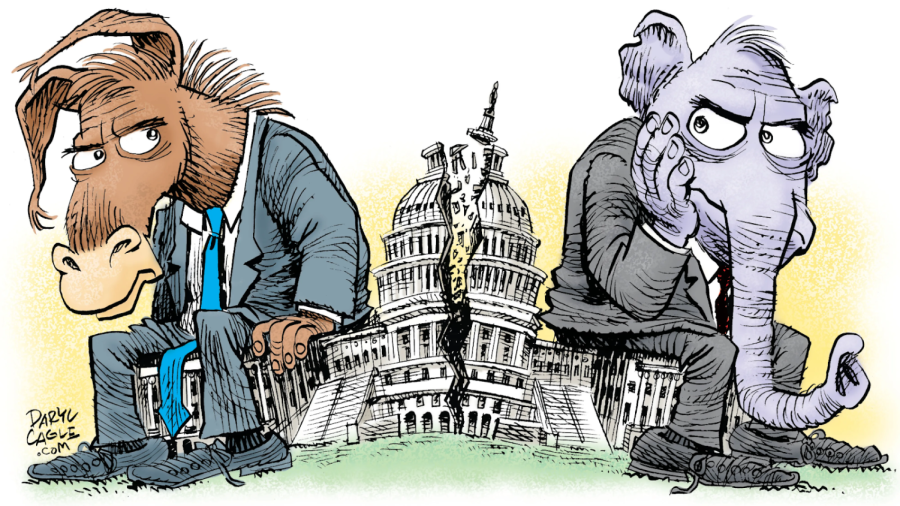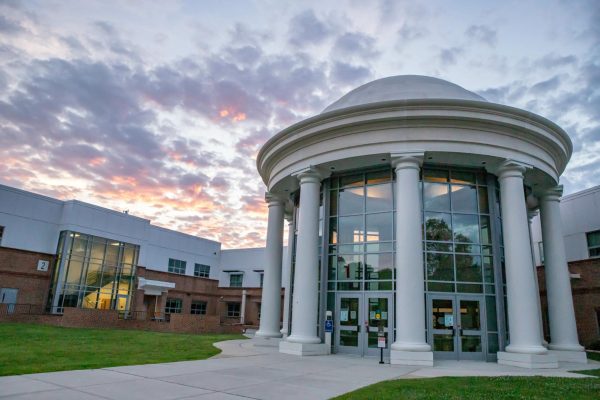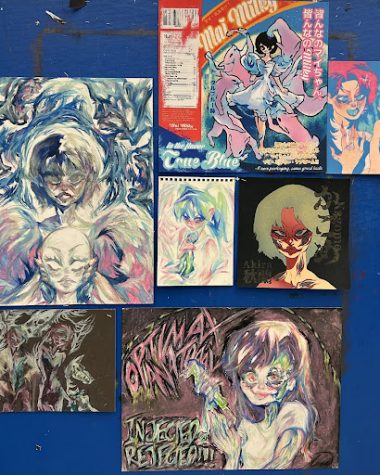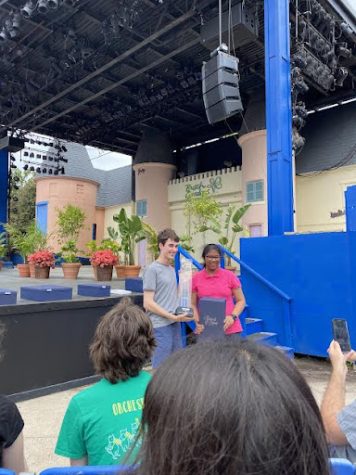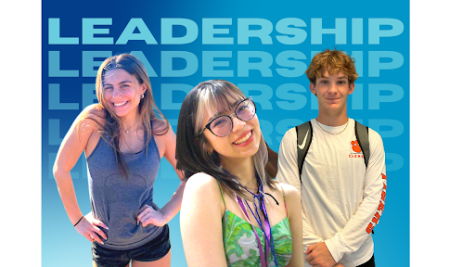The need to embrace diversity of thought
Anyone who is not living under a rock knows about the political discourse in America. Everything is black or white, no gray. A look at the local political landscape may provide some insight. Northern Virginia leans towards the Democrats. In fact, a staggering 69.9% of Fairfax County voters are affiliated with the Democratic Party as of the 2020 Presidential Election. In accordance with the surrounding area, South Lakes is overwhelmingly Democratic as the vast majority of students who express their political views lean to the left on the political spectrum.
All of these statistics and numbers mean very little, though. Only a select number of seniors can actually vote in elections, so realistically, this should mean nothing at the high school level. However, at South Lakes, there are multiple clubs that revolve around specific political interests of students. These clubs include Young Democrats, Young Republicans, as well as some other, more specific interest groups related to politics.
In unconscious coordination with the rest of the nation, there is a lot of scrutiny that comes with voicing one’s political views. Regardless of which side of the spectrum is being expressed, there is seemingly always someone who is going to disagree with another’s views and likely judge them for it. Madelyn Bobko, Co-President of the South Lakes Young Democrats Club, states, “In my experience, history classes are where people aren’t so enthusiastic to proclaim their views because they might be scrutinized by individuals of opposing ideologies. That isn’t really the attitude that is to be brought into the learning environment. I think people should be open to having dialogue with others across the political spectrum.”
While he stands on the other side of the political spectrum, Eric Panczyszyn, staff advisor of the South Lakes Young Republicans Club, describes a similar scene of being ostracized for voicing his political opinions.
“The biggest problem is that most people in this building think this way, and I think most times they have a problem with the discrimination that they, hypothetically, will receive from everybody else in the building because it’s predominantly liberal,” he explains.
He goes on to talk about how he feels as though students do not want to come out and say that they align themselves with the Republican Party. “(You) look at Young Democrats and how they have around 90 members. Then (you) look at (us) and how we only have like four… That is certainly not representative of the school and how some people think,” Panczyszyn says.
In the classroom, it is a similar story. Meghan Baumann, the advisor for the Young Democrats, goes into detail about how she views the political divide amongst students, “I also teach government. In my classes, I definitely notice some pretty strong divides in terms of students that would be more on the Republican side and students that are more on the Democratic side.
And that has come out more than once in debates and classroom discussions. It is really reflected with students gravitating towards peers who share their views, maintaining that level of comfort,” Baumann says.
South Lakes, like Chantilly, has had their school political climate tested in recent years. Posters for political clubs, specifically the Young Republicans, have been torn down and even defaced by students of other ideologies. The level of discourse that exists among the students has really made it difficult for individuals to feel comfortable sharing their views. As Steven Brown, another advisor for the Young Republicans, explains, “We have, on numerous occasions, asked students if they were willing to join the club. Their response has been that they did not want to be put in that awkward position in front of their peers.”
The only remaining question for the South Lakes community is where to go from here. There is no definitive answer about the next steps in creating a more politically acceptable environment for students. However, as Madelyn says, “I think that we can make a community with room for both communities and for people to feel comfortable voicing their opinions. We just have to remove this stigma about vocalizing political views.” To some degree, that might not be too difficult to accomplish, but in practice, it is challenging. Like the rest of the country, the student body at South Lakes is incredibly diverse, and the struggle lies in the willingness to agree to disagree. Perhaps the answer is to remember the words of Stephen R. Covey, “Seek first to understand, then to be understood.”
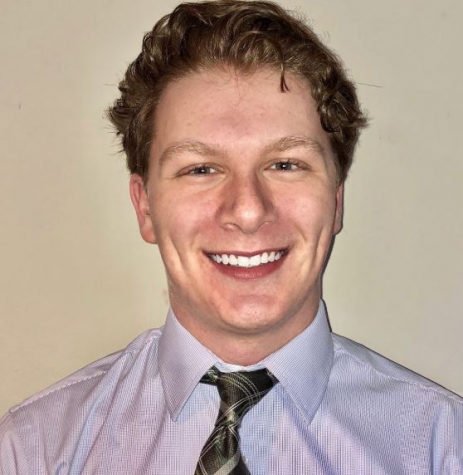
Marc is a senior at South Lakes and is the Editor in Chief of The Sentinel. This is his 4th year on staff, and third as an editor. Outside of writing for...








